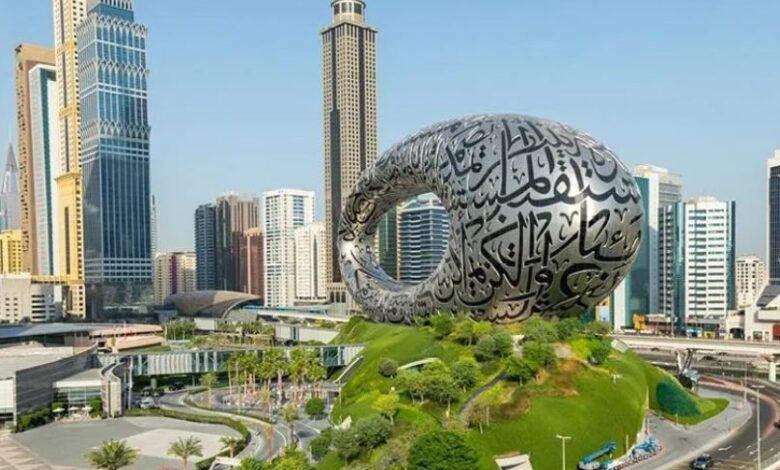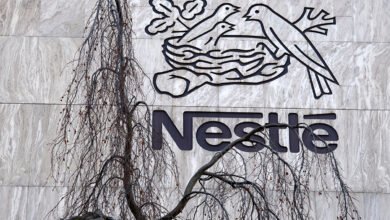
Global Rankings: UAE is World’s Most ‘Economically Stable’ Country
The United Arab Emirates has reached a remarkable milestone by becoming the world’s most economically stable country. Their exceptional financial resilience, strong economic growth, and impressive market performance across sectors validate this recognition. The nation’s strategic economic policies and diversification efforts have played a significant role to achieve this distinguished status.
Dubai exemplifies UAE’s economic success story and demonstrates the impact of its detailed economic reforms. The country’s business-friendly policies and support for entrepreneurship have built a stable environment that attracts both local and international investors. This piece analyzes the driving forces behind UAE’s economic stability and what lies ahead for its growth trajectory in the coming years.
UAE Tops Global Economic Stability Rankings
The UAE has shown remarkable economic stability and resilience in the latest US News and World Report rankings that covered 89 countries worldwide. The full assessment gave the UAE perfect scores in several vital areas that highlight the nation’s outstanding economic performance.
Key indicators revealed impressive results:
- 100/100 for favorable tax environment
- 90.7/100 for entrepreneurial environment
- 87/100 for digital infrastructure
- 84/100 for physical infrastructure
- 86.9/100 for job market strength
The UAE’s success comes from its smart economic management with low manufacturing costs and minimal red tape. The country stands out from traditional economic leaders through its steadfast dedication to transparent government practices. The World Economic Forum agrees and names the UAE as the most competitive economy in the Arab world.
CIA’s World Factbook shows UAE’s per capita gross domestic product matches leading Western European nations. This strong economic foundation makes the country an ideal spot for global investment. Recent legal and regulatory reforms aid business operations and ensure complete transparency in economic data.
Pillars of UAE’s Economic Stability
UAE’s economic stability stands on multiple strategic pillars that have made the nation’s financial position stronger. The country’s strategic location between Asia, Europe, and Africa serves as the cornerstone of this soaring win by enabling smooth global trade and investment flows.
The nation’s banking sector shows exceptional strength, and its combined capital and reserves reached AED 438.6 billion by January 2023 – a substantial rise from the previous year. National banks make up 86.5% of this amount, which highlights domestic financial institutions’ strength.
UAE’s sovereign wealth funds are vital pillars that support stability:
- Abu Dhabi Investment Authority (ADIA) – USD 853 billion in total assets
- Investment Corporation of Dubai (ICD) – USD 309 billion in current assets
- Mubadala Investment Company – USD 284 billion in current assets
Economic diversification works well, especially when you have the non-oil sector contributing 72.3% to UAE’s GDP at constant prices. Nearly 40 multi-specialty free zones support this change by offering economic incentives, tax exemptions, and full foreign ownership privileges.
UAE’s forward-thinking policies have stimulated substantial foreign direct investment, which reached USD 19.884 billion in 2020 with an 11.24% growth rate. This achievement makes UAE the leading FDI recipient in West Asia, as it captures 54.4% of the region’s total inflows.
UAE’s Performance in Other Categories
UAE has shown exceptional performance in multiple categories beyond its economic stability, which strengthens its position as a global leader. The country’s impressive score of 93.3 out of 100 in policy and regulation highlights its success in digital infrastructure. This achievement stems from open data policies and strong data protection laws.
UAE stands at the forefront with remarkable scores of 82.9 and 89.9 out of 100 for infrastructure and affordability. The country’s digital connectivity excels with 4G coverage reaching 99.8% of its population. UAE also joins an elite group of three nations that have launched commercial 5G networks.
UAE’s entrepreneurial ecosystem has earned worldwide recognition. The country ranked first in the Global Entrepreneurship Monitor (GEM) report for 2023-2024 with an outstanding score of 7.7. Key accomplishments include:
- First place in all but one of these entrepreneurship indicators
- Third position worldwide in physical infrastructure
- Top 5 ranking for women entrepreneur support
- Leadership in the National Entrepreneurship Context Index
UAE’s business landscape continues to thrive. Abu Dhabi holds the top global position for internet speed. Dubai ranks 24th among 156 cities worldwide in global participation and connectivity. This shows UAE’s steadfast dedication to building a competitive and innovative economy.
Economic Projections and Future Outlook
The UAE’s economic future looks bright according to recent forecasts. The Arab Monetary Fund expects the UAE’s economy to grow by 3.9 percent in 2024 and reach 6.2 percent in 2025. Multiple sectors show strong performance that drives this growth, especially in non-oil activities.
The non-oil sector shows remarkable strength with an expected growth of 4.1 percent in 2024. Financial and insurance activities lead these sectors with a growth rate of 7.9 percent, while transportation and storage follow at 7.3 percent. Dubai’s tourism sector continues to thrive, attracting 5.18 million international tourists in early 2024. This number represents an 11 percent rise from last year.
The “We the UAE 2031” vision outlines these ambitious goals for the next decade:
- GDP growth from 1.49 trillion to 3 trillion AED
- Non-oil exports increase to 800 billion AED
- Tourism sector to contribute 450 billion AED to GDP
- UAE foreign trade expansion to 4 trillion AED
The UAE shows steadfast dedication to green development through its Energy Strategy 2050. This strategy aims to boost clean energy’s share from 25% to 50% in the total energy mix and could save AED 700 billion by 2050. The introduction of federal corporate tax and ongoing fiscal reforms strengthens UAE’s position for continued economic growth and diversification.
UAE has achieved remarkable economic stability worldwide through its strategic vision and complete reforms. The nation earned perfect scores in its tax environment and received exceptional ratings for entrepreneurship and resilient infrastructure. This success shows UAE’s dedication to building a strong economic framework. The country’s non-oil sectors now account for 72.3% of GDP. World-class banking systems and sovereign wealth funds manage assets worth over trillion dollars collectively.
The nation’s economic stability model serves as an example for eco-friendly development today. Economic forecasts predict growth rates of 3.9% in 2024 and 6.2% in 2025, which showcase this model’s enduring strength. “We the UAE 2031” sets ambitious targets that will expand the nation’s economic influence globally. These accomplishments establish UAE as a world leader in economic breakthroughs and stability. The country proves that strategic diversification and forward-thinking policies create lasting prosperity effectively.







[…] an amazing story about the positive changes happening in UAE households every day. Domestic workers create lasting bonds that connect different cultures and last a lifetime. The UAE government shows […]
[…] Previous Economic Performance […]
[…] Budget for fiscal year 2025. This vital financial framework shows the nation’s dedication to eco-friendly development and economic growth in all sectors. UAE’s forward-thinking approach to fiscal […]